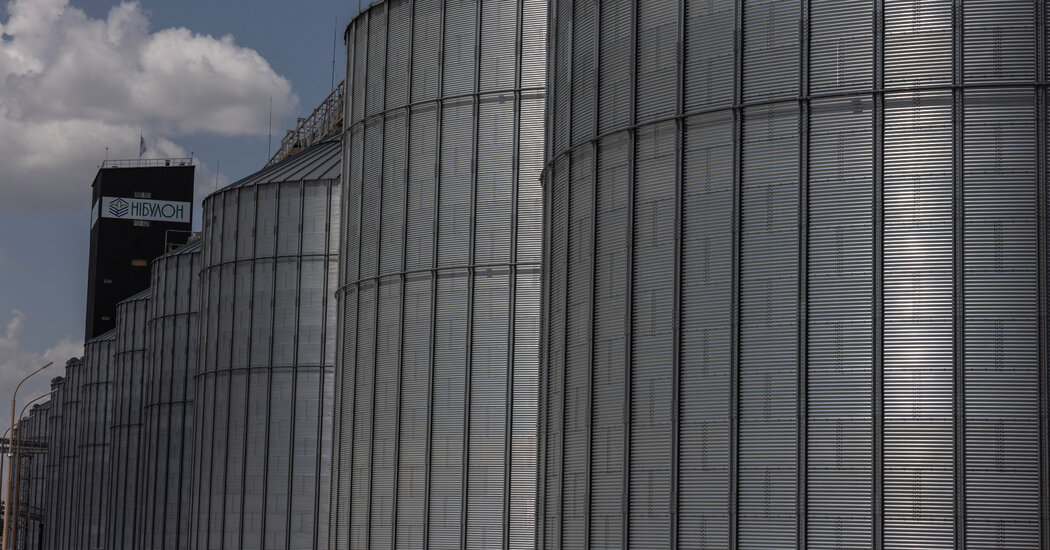The risk of renewed volatility in global food prices arose Monday after President Vladimir V. Putin pulled Russia out of the Black Sea grain deal, rattling wheat markets and exposing vulnerable countries in Africa and the global south in particular to the prospect of another round of food insecurity.
Chicago wheat futures, a barometer of world prices, briefly rose more than 4 percent as the Kremlin again jeopardized a key trade route to world markets for grain from Ukraine, one of the world’s largest breadbaskets. Later, prices fluctuated to more than 1 percent lower for the day.
Russia’s move appears to be part of a broader effort by Mr Putin to reassert an aura of unassailable authority following a failed Wagner Group mutiny, said Timothy Ash, a senior sovereign strategist at BlueBay Asset Management in London and an expert on Russia and Ukraine. “It will hurt specific countries that depend on these exports,” said Mr. Ash. But apart from that, “it shows how weak Putin is after Wagner’s coup: he is now desperate to exert any influence possible.”
The Black Sea Grain Initiative was launched a year ago to alleviate a global food crisis following Russia’s invasion of Ukraine, when Russia blocked ships carrying the country’s grain from its Black Sea ports. These blockades quickly drove grain prices to record highs.
Since the deal, food prices have fallen more than 23 percent from their peak in March 2022, according to the Food Price Index of the United Nations Food and Agriculture Organization. The deal has made it possible to export more than 35 million tons of essential food products from Ukrainian ports on the Black Sea to 45 countries on three continents, the United Nations said.
With Black Sea ports closed again, Ukraine may have to make greater use of alternative routes to transport the grain, including export via the River Danube, and by overland truck and train – journeys that take much longer than the putting the goods on ships.
Some factors may prevent food prices from rising to the staggering levels just after Russia invaded Ukraine. First, the outlook for global commodity prices is weaker than a year ago due to a faltering economic recovery in China, while a global cost-of-living crisis – fueled in part by rising food and fuel costs due to Russia’s aggression – has question more broadly eroded, said Mr. Ash.
Supply chain tensions are also easing and production and production costs have fallen, according to an analysis by Oxford Economics. Nevertheless, food prices, while falling, are likely to remain high compared to pre-war levels, the think tank said.
Arlan Suderman, chief commodities economist at the financial services firm StoneX, said that as far as global food supplies are concerned, Russia is still dumping cheap wheat onto the market “so we’re not out of wheat now.”
“This particular development today may not do much to endanger world hunger, but the continued escalation with no resolution in sight means the risks are still mounting,” he said.
The day before Putin pulled out of the grain deal, he sent a separate warning shot to Europe by signing a surprise order temporarily seizing the Russian operations of two major European companies.
Danone, the global dairy producer based in France, said in a statement that its Russian assets had been placed under temporary administration by Russian authorities and that it was “investigating the situation”. The company added that it “prepared all necessary measures to protect its rights as a shareholder of Danone Russia and the continuity of the company’s operations in the interest of all stakeholders, in particular its employees.”
Danish brewer Carlsberg, the world’s third-largest beer producer, said it learned on Sunday that its Baltika brewery in Russia had been transferred to the temporary management of Russia’s Federal Agency for State Property Management. Carlsberg announced his withdrawal from Russia over a year ago. Last month it said it would invest $40 million in its Ukrainian factories and found a buyer for the Russian operation, which employs 8,400 workers.
“Following the presidential decree, the outlook for this sale process is now highly uncertain,” Carlsberg said in a statement Sunday.
Patricia Cohen reporting contributed.

